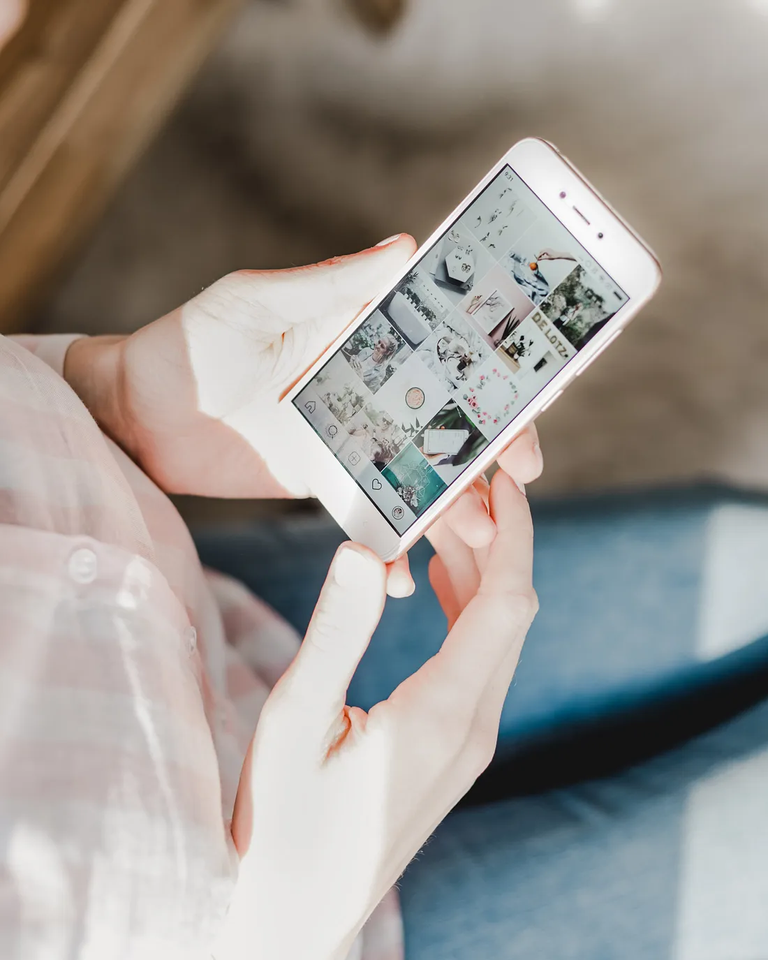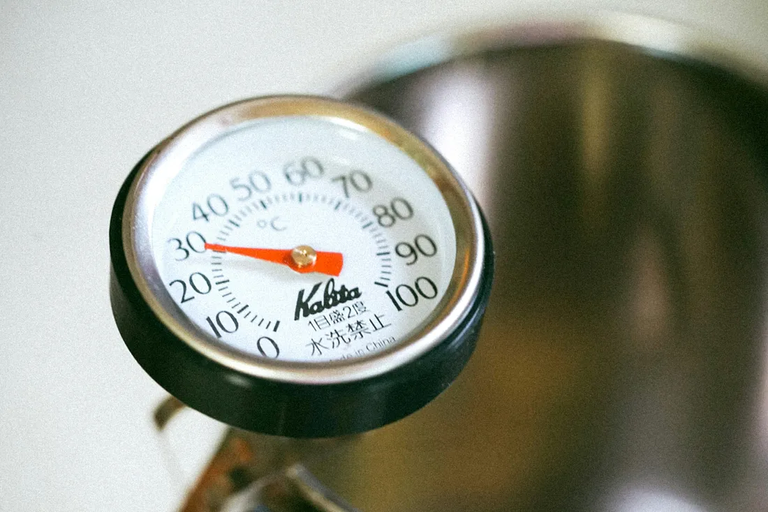You probably have no problem playing your daily scheduled video games or browsing social media. There is also no doubt that you can sit in front of the screen and stare at it all day without a break in concentration.

A woman holding her phone with her two hands. She is browsing social media
Photo by Georgia de Lotz on Unsplash
But think about studying for 1 hour…OOFF!! That might be hard. Or even working on your side business for 1 hour…Hmm. Doesn’t sound so appealing.
Ah, you’re probably scratching your head, wondering, “Is she a modern-day witch, or did she just binge-watch too many mind-reading tutorials on the mystical internet? Is there a Hogwarts for telepaths I don’t know about.
Well…that’s not the case. Or…maybe it is 😉
Okay, realistically speaking, no doubt studying, exercising, building a business or something equally productive would bring more benefits in the long run. But knowing this, we still prefer watching TV, playing video games and browsing social media. [Yeah…I do the same too…Guilty as charged]
However, one might argue that it’s obvious why this happens. It’s the simple reason that one activity is easy and doesn’t require much effort, whereas the other is difficult and requires you to apply yourself.
A child playing the “Jenga Tower” game
Photo by Michał Parzuchowski on Unsplash
BUT some people don’t mind studying, exercising, or working on side projects regularly. [Wait….let’s rewind…what?…they are people who actually like these…]
Saying some people enjoy doing these activities begs the question: Why are some motivated to tackle difficult things? Is there a method to make difficult things easy? Well…I know you also want to know the secret behind this, so let’s dive right into it.
To answer this question, we need to look at the brain neurotransmitter, Dopamine. Dopamine is often considered the pleasure molecule. But, what that is, is not what it does. What exactly does dopamine do? — It makes us desire things.

A woman jumping in excitement
Photo by Dmitry Shamis on Unsplash
This desire gives motivation to get up and do stuff. However, we are still not sure as to how powerful dopamine is. But let me note down a few experiments that neuroscientists did on rats.

Researchers planted electrodes on the brains of rats and there was a lever which was placed in front of them. Whenever the rat pulled the lever, the researchers stimulated the rat’s reward system, ultimately making the rats develop a craving so strong that they pulled the lever over and over again for hours. The rats refused to eat or sleep, and they kept pressing the lever until they dropped from exhaustion.
BUT THEN THE PROCESS WAS REVERSED.
The researchers blocked the release of dopamine in the rat’s reward system. They became so lethargic that they didn’t even put the effort to get up and drink some water. They didn’t eat, didn’t want to mate, or didn’t crave anything at all. What was seen is that the rats lost their will to live. When food was placed close to their mouths, they would happily enjoy it but didn’t have the motivation to do it themselves.You would think thirst and hunger motivate us to eat and drink but dopamine plays a key role here. These rat experiments are extreme cases, but you can see the similar effects dopamine has in humans and our daily lives.
A single tree in a land
Photo by Mehdi Sepehri on Unsplash
In fact, your brain develops priorities in large part because of how much dopamine it is expected to get.

If that particular activity releases too little dopamine, there will be less motivation to do it. But if it releases a lot of dopamine, you will be motivated to repeat it over and over again.
So what behaviours release dopamine? — Any activity you anticipate a particular reward, releases it. If no immediate rewards are there, then the brain won’t release it.

— For example, before eating comfort food, the brain releases dopamine because you anticipate the food will make you feel good.
Your brain doesn’t care if high dopamine levels are damaging, it just wants more. Ex: A drug addict knows what he’s doing is not good for him, but still he wants more. Besides, getting high on cocaine and heroin releases unwanted amounts of dopamine.

Simply speaking, nearly everything releases dopamine
The highest dopamine is released when you get a reward randomly. Well…isn’t that obvious…If you are playing on a slot machine, even if you lose, you expect a bigger reward. You just don’t know when it will happen.
Two boys playing video games on their computers
Photo by Alex Haney on Unsplash
In today’s digital world, we are flooding our brains with unnecessary amounts of dopamine daily, even if we don’t know this. May it be scrolling through social media or playing video games. We anticipate some reward with such behaviours.
— That’s why we are constantly checking our phones, expecting a text message or notification and that we are eventually getting it. (We are trying to get that dopamine hit like those rats). Now, you’ll be like…”OH, SO WHAT, it wouldn’t harm me anyway.” But you are wrong…
Our bodies have various biological systems, one namely called “homeostasis.” Homeostasis means our body likes to keep its internal chemical and physical conditions at a balanced level. Whenever an imbalance happens, the body adapts.
— For example, if the environment is cold, your body temperature goes down, so you shiver to generate heat and warm up your body. Similarly, if it’s hot outside, your body temperature goes up, so you start sweating to lose that heat. Your body tries to be at 37 degrees Celsius at all times, no matter what.
A gauge reading 30 degree celcius
Photo by Manki Kim on Unsplash
Homeostasis has another way to manifest itself, and this is called tolerance. For example, someone who rarely drinks will get drunk fast, whereas someone who drinks regularly will have to drink more because they have developed a tolerance towards alcohol, thereby making them less sensitive to its effects.
IT’S NOT SO MUCH DIFFERENT WITH DOPAMINE.
Your body tries to maintain homeostasis, so down-regulates your dopamine levels. Essentially your body gets used to having high dopamine levels and now it becomes your new normal, so you develop dopamine tolerance.
This is a huge problem because the activities that don’t give you much dopamine don’t interest you any longer, so you don’t feel motivated to do them. You feel bored, and less fun as it doesn’t release much dopamine. That’s why we like to play video games and browse social media rather than study or work. Video games make us feel free, good and comfortable as they release a good amount of dopamine than what is released when studying or working.
This is why drug addicts find it difficult to have a normal life. They take drugs, and their dopamine tolerance gets so high, that their normal life isn’t able to match it. They become like the rats from those previous experiments who have no motivation to do anything. It’s like when we experience the effects of high dopamine, we simply aren’t able to enjoy low dopamine behaviours.
A woman leaning her head on a bench with her book on her face, showing signs of boredom
Photo by Tony Tran on Unsplash
Now this begs the question…Is there anything that can be done to prevent this? The answer is to perform a dopamine detox.

— What you are going to do is → set aside a day where you are going to avoid all highly stimulating activities. You are going to stop flooding your brain with high amounts of dopamine and you are going to make your dopamine receptors recover.
For one whole day, you are going to have little fun with no internet, no technology like your phone or computer, listen to music or eat junk food. You are going to remove all sources of external pleasure for the entire day. You are going to embrace boredom. And trust me…there’ll be a lot of boredom. You are however, allowed to do the following → go for a walk, meditate and be alone with your thoughts, reflect on life and goals, and write down any ideas you get on a physical piece of paper.
These all might seem intense, but if you want radical results, you want them fast, you need to be able to take radical action.
You must be asking yourself, why would this work?
— Let’s say, you have been eating every single day at the best restaurant in your town. So, those fancy meals become your new normal. If you are offered a bowl of rice, you would probably refuse, as it isn’t like your fancy restaurant meal.
— But if you are stranded on an island, and if you are starving, then that bowl of rice wouldn’t seem so bad.
That’s what the dopamine detox does. It starves you all the pleasure you usually get, and in turn, makes those activities more desirable. To put it simply, dopamine detox works because you feel bored making those boring stuff more fun.
A girl reading a book
Photo by Priscilla Du Preez 🇨🇦 on Unsplash
Now if you don’t want any extreme pressure or if you do not want to starve yourself of all the pleasure, you can perform a smaller dopamine detox.
— Pick one day of the week and you are going to refrain from doing one of your high dopamine behaviours completely. You can do all other things, but the behaviour you choose is off-limits.
You will become slightly bored but that’s the point. Let your dopamine receptors recover from the high dopamine. So boredom is going to propel you to another task, one that you feel like not doing usually. Since you are bored, it’ll be easier for you to do them.
Avoiding high dopamine behaviours once in a while is good, but ideally, you should avoid all these behaviours altogether, or as much as possible.
Instead, you can add more dopamine to the activities that benefit you, making you pursue those regularly, and giving you long-term benefits. You can do this by using one of your high-dopamine-releasing activities as a reward after completing difficult work.
A woman writing on a blank page of a book
Photo by Kenny Eliason on Unsplash
Track all low dopamine activities, like cleaning, studying or exercising. After doing these to some extent, I reward myself with the same amount of high-dopamine activity at the end of the day. Notice the keywords here; “After” and “at the end of the day.”
If I indulge in high-dopamine activities first, then I’m not going to feel like doing the low-dopamine ones. I will not be motivated enough. So low-dopamine first….then high-dopamine…
Example
— For example, for one hour of completed low-dopamine work, I reward myself with 15 min of high-dopamine behaviour at the end of the day. That means for 8 hours of low dopamine, I allow myself around 2 hours of dopamine. Of course, these are my ratios, you can tweak them to your liking….
NOTE: If your high-dopamine activity is addictive like smoking or drinking, then you shouldn’t treat it as a reward. Instead, find a different one that is not damaging.
If you are wondering what my guilty pleasure is, it’s the internet. I get lost there and lose track of time. That’s why I have this system, so I’m able to control my addiction. But I still have some days where I refrain from engaging in any high dopamine activities completely.

Conclusion
I can definitely tell you that it’s worth it….So if you have no motivation, start dopamine detoxing your brain ASAP!!!
— Separate yourself from the unhealthy amounts of dopamine released. Only then those normal and everyday behaviours will be exciting and you’ll be able to do them longer.
We are all dopamine addicts to some extent. And that’s a good thing because dopamine motivates us to achieve our goals and improve ourselves.
But it’s for you to decide where you’re going to get it.
THE CHOICE IS YOURS!!!